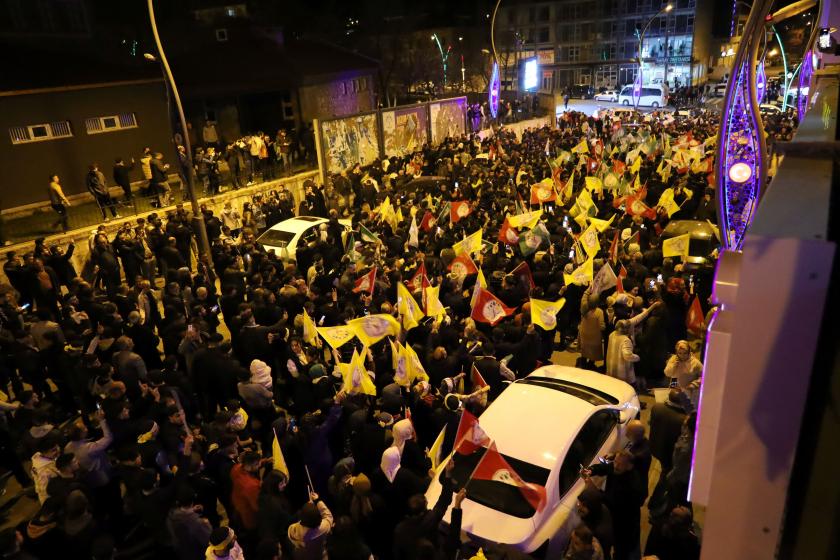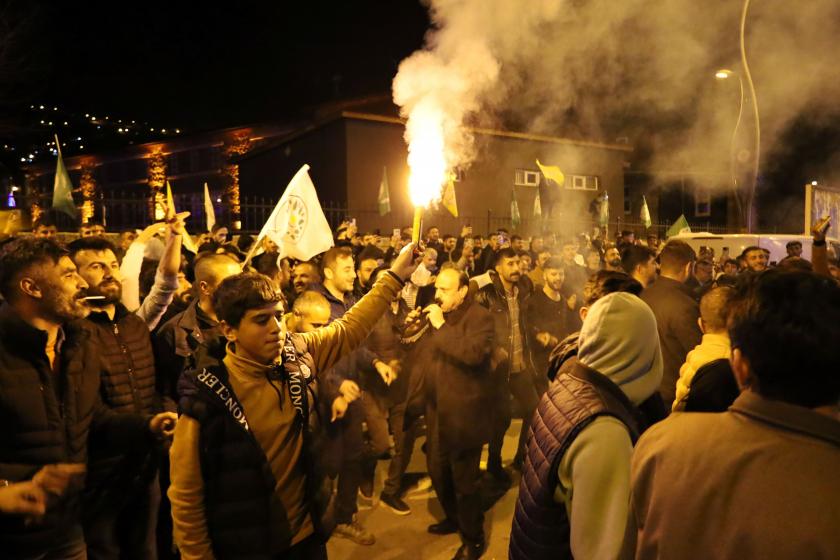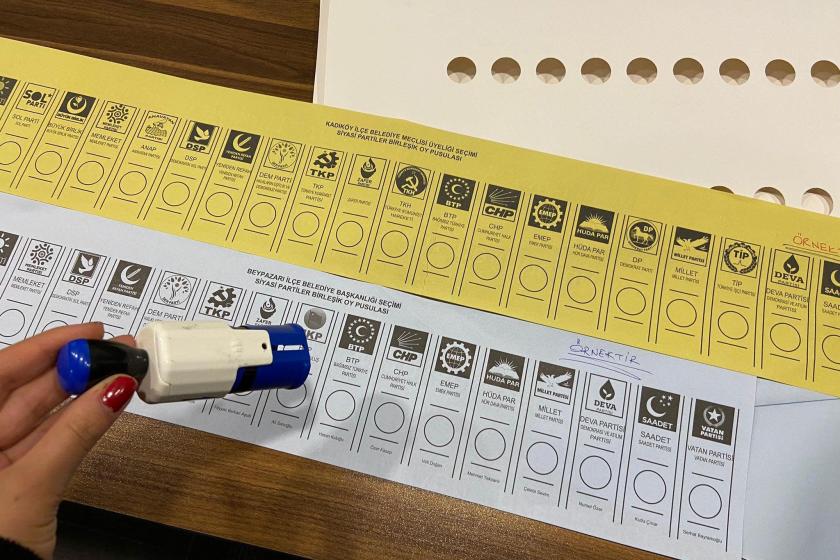With the passing after long years of Ankara and İstanbul to the opposition - the ruling party’s objections over these two cities were continuing as this article was being penned - being one of the most critical results of this election, the palpable influence on the results of the effects of the economic crisis was another important outcome.
It is also important to take a calm reading of the results augured in the emerging landscape now that the votes have fallen into place.
In the 24 June general election, the AKP’s Turkey-wide vote was 42.56%, while that of its MHP alliance partner was 11.1%. We see a drop in the People’s Alliance’s share of the vote from 53.66% in the elections nine months ago to 51.62% in the 31 March 2019 local election.
This 2.04% drop is not a fall to be taken lightly for a ruling party that drew on all the state’s resources and overwhelming media support. However, it does not point, either, to AKP voters now having started to abandon the party at great speed.
Let me once more stress that crisis will not on its own act as an opposition party. History is replete with examples of fascist parties gaining strength in periods in which the opportunities afforded by crisis were not appraised correctly by the opposition. In fact, we know that today, too, right-wing parties that use xenophobia and populist discourse have gained strength in various parts of the world. Hence, the opposition’s ability or inability to adopt a stance that fosters awareness among the working masses of the relationship between the crisis and the system and ruling party policies and also gives hope of change will have a crucial effect on the political balances in the coming period. We cannot say that the opposition correctly appraised the opportunities the times afforded it and created hope of change among the wide masses before these elections.
A further major influence on the outcome of these elections was the tactic the HDP implemented. Had it not been for the HDP’s support for the “Nation Alliance” candidates despite the absence of an expressly articulated “alliance” policy, we would now be discussing different results. Stress must also be laid on Selahattin Demirtaş’s appeal from prison for votes to be cast.
Along with this positive result portended for the HDP by these elections, there are also conclusions that must be drawn for the HDP looking forward. With the ruling party attempting to demonize the HDP over the electoral process and to hound the opposition for its relations with the HDP, it also stated that it would re-appoint trustees to municipalities that passed into the HDP’s control. And one of the factors that will enable the HDP to pre-empt such a move will be its continuation of this significant relationship it has forged with the demand for democratic change in the West.
It is of crucial importance from the perspective of Turkey’s democratic forces and from the perspective of solving the country’s basic problems, not least the Kurdish problem, to correctly read and interpret the opportunities afforded in this landscape.
The need for attitudes and rhetoric towards the HDP on the “Nation Alliance” front to undergo “rehabilitation” is another truth that this electoral process has thrust forward.
Well, what will happen next?
We will see the ruling party attempting to manipulate and ward off proceedings faced with the corruption that will come to light through the examination of the accounts of municipalities it previously held. We will also witness serious difficulties of the ruling party’s making at municipalities that have passed to the opposition. President Erdoğan actually spoke of this, too, both in his speech before voting had started and on the evening of the election. Confronted by such developments, it will be important for the opposition to succeed in developing a position that wins the people’s trust.
The results obtained by the Labour Party (EMEP), which was prevented from contesting the election by the Supreme Election Council, in the election, which it contested with independent candidates in worker towns and areas that it prioritized in its campaigning, were encouraging for an election in which polarization featured so prominently.
(Translated by Tim Drayton)



